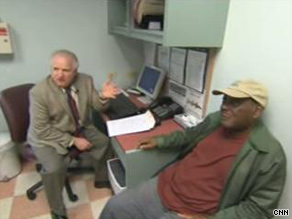
Written by: Lisa Matthys
Senator Dick Durbin of Illinois is pushing Congress for an extension of unemployment insurance benefits. With more than 1.3 million Americans, 50,000 in Illinois, set to lose their benefits by the end of the year if the extension is not approved, this matter should not be taken lackadaisically. The proposed extension will provide benefits for an additional 14 weeks for jobless workers in all 50 states, and would add 6 weeks of insurance for jobless workers in states with an unemployment rate above 8.5%.
However, recent efforts to extend the unemployment insurance have been blocked by the Republican Party because of how the proposed bill is to be funded. The Democrats’ plan would use an expiring surtax on businesses, whereas the Republicans want to use unspent money from the stimulus bill.
With an ever increasing rate of unemployment in the United States, something needs to be done fast as many Americans are already without unemployment insurance benefits mostly because they have termed. With jobs at a scarcity, the Senate needs to quickly determine an appropriate extension for unemployment insurance that is not only effective in helping citizens but also agreeable by both parties.
Source 1
Source 2
Source 3
























